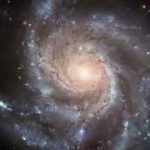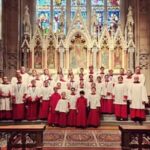Now the serpent was more crafty than any other wild animal that the Lord God had made. He said to the woman, ‘Did God say, “You shall not eat from any tree in the garden”?’ The woman said to the serpent, ‘We may eat of the fruit of the trees in the garden; but God said, “You shall not eat of the fruit of the tree that is in the middle of the garden, nor shall you touch it, or you shall die.” ’ But the serpent said to the woman, ‘You will not die; for God knows that when you eat of it your eyes will be opened, and you will be like God, knowing good and evil.’ So when the woman saw that the tree was good for food, and that it was a delight to the eyes, and that the tree was to be desired to make one wise, she took of its fruit and ate; and she also gave some to her husband, who was with her, and he ate. Then the eyes of both were opened, and they knew that they were naked; and they sewed fig leaves together and made loincloths for themselves.
For some time, scientists have been developing increasingly powerful telescopes. By launching them into the vacuum of space, they are able to escape the Earth’s polluted atmosphere to look at stars that were born as long as 15 billion years ago. The most famous of these giant telescopes is Hubble, and its far-sighted range is known as the Hubble Deep Field. Cosmic events in this arena ripple through space and time, leaving echoes of themselves in everyday phenomena such as radio waves and gravity.

The garden in Genesis 3 is rather like the Deep Field of theology. Here, we encounter the fundamental human need for knowledge, and witness events that give way to the birth of morality. Paradise is ruined in a single moment (a singularity, if you like) when the woman and man are first introduced to the inexorability of time’s forward movement. Their practical response to this philosophical and ethical mystery is the primitive foreshadowing of our relentless modern scientific pursuit of a Theory of Everything.
Echoes of Eden are found throughout Lent. At our services today, the St Cecilia Choir of Girls sings Handel’s setting of Wash me throughly, a paraphrase of Psalm 51 that evokes an image akin to Macbeth as he attempts to rid his guilty hands of blood. Later, the Christ Church Scholars sing O Lord, in thy wrath, rebuke me not, by Gibbons. The text is a heartfelt cry of human existence, grounded in physical pain, ‘For my bones are vexed’, ending with the plea, ‘Lord, how long wilt thou punish me? O save me, for thy mercy’s sake.’
Guilt, pain, remorse, and pursuit: these echoes from that first singularity resonate throughout history and science. As Christians (and perhaps as scientists too), this dissonance can only find its resolution in Jesus Christ, crucified, risen, and ascended. For when time itself comes to an end, he will be enthroned, in the end, as Lord of all time.
Lent 2017


